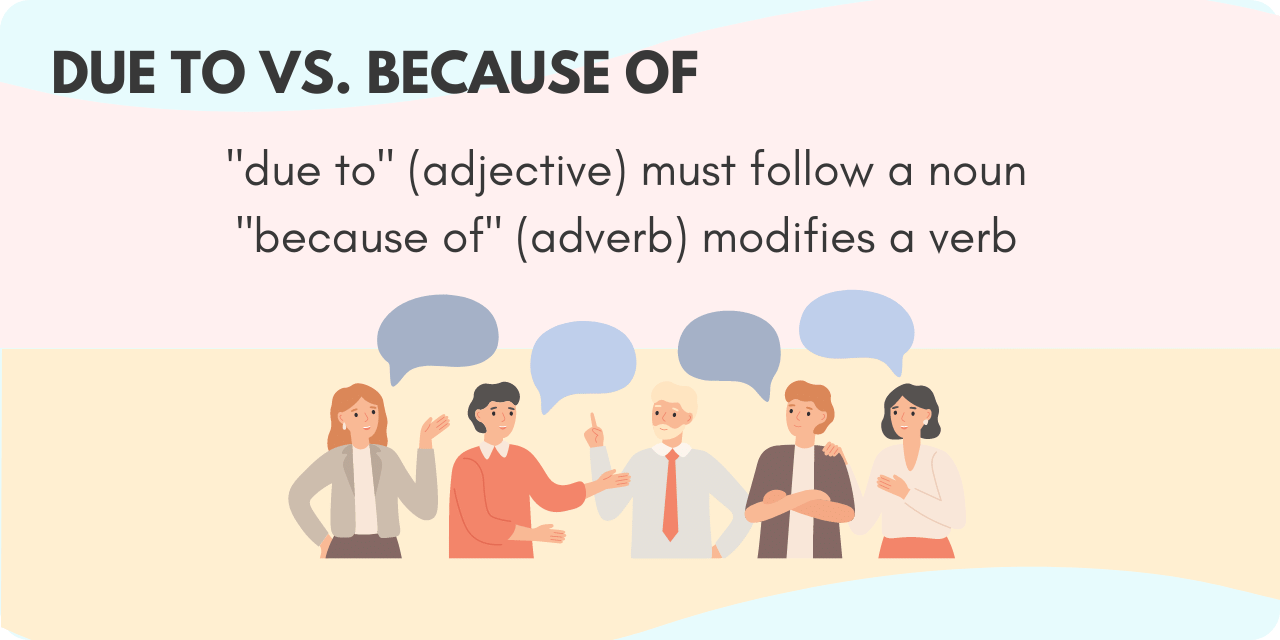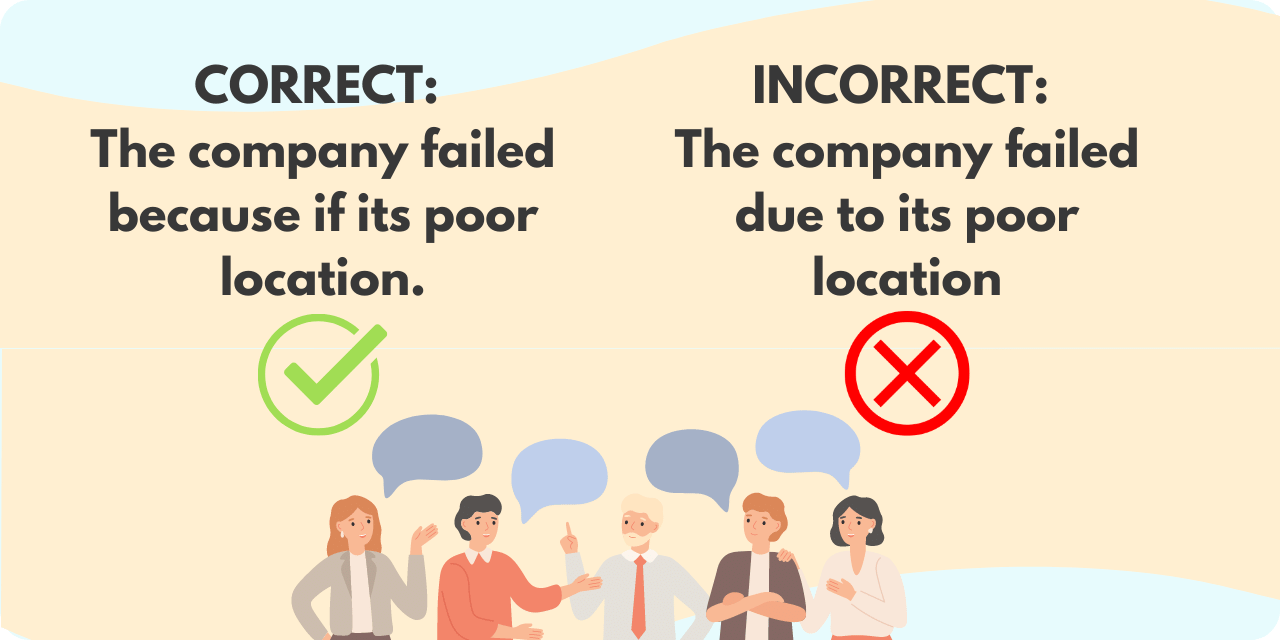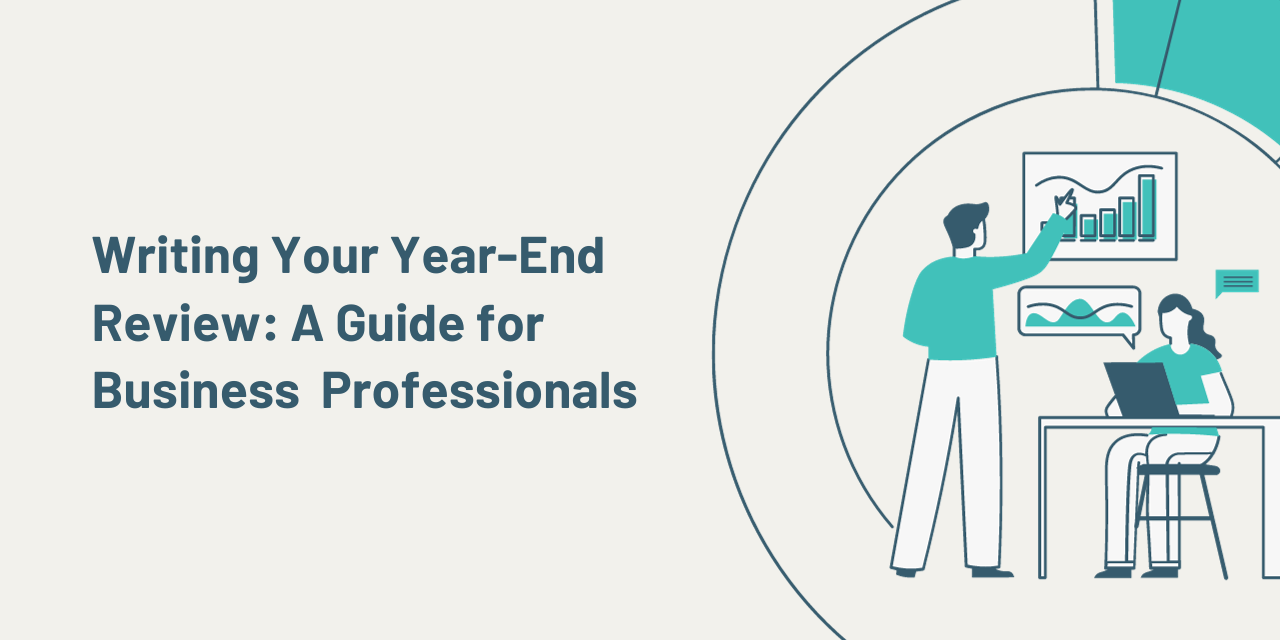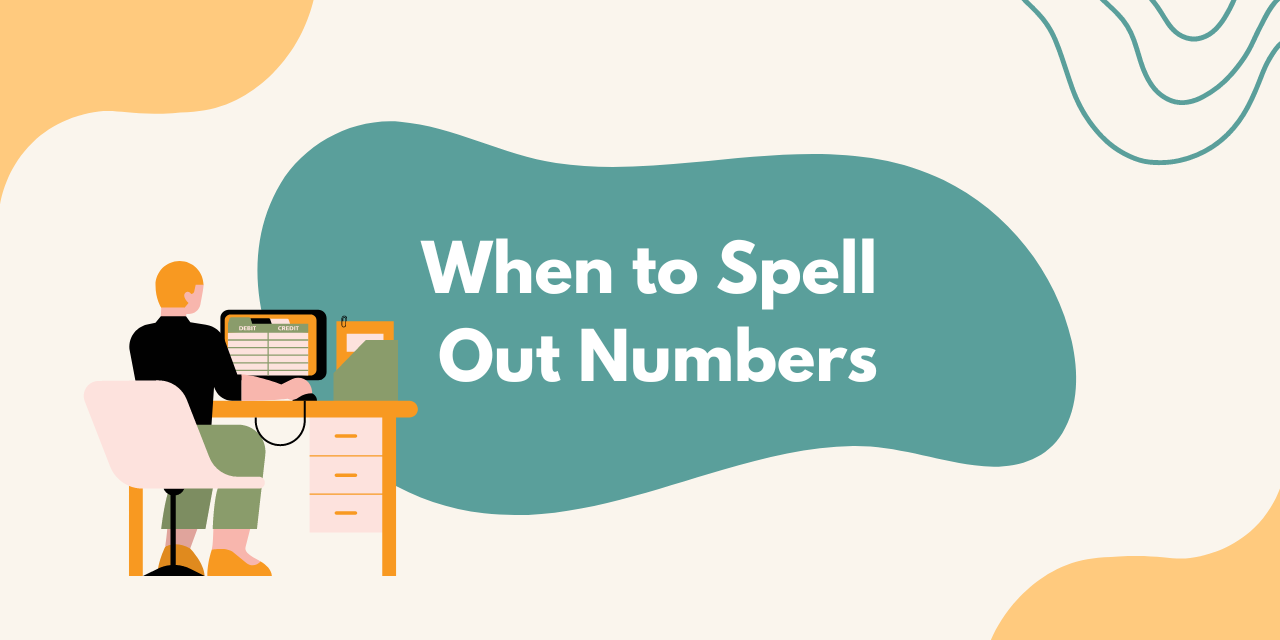What’s the difference between “due to” and “because of”?
You may have caught yourself using the phrase “due to” rather than “because of.” You may have done so because it’s simpler and shorter and gives a more formal touch to your writing.
However, according to the rules in the English language, “due to” is usually not the correct usage.

The rule is that you should only use “due to” as an adjective, and it must come after a noun. An example of this proper use would be:
“The cancellation was due to the rainstorm.”
In this case, ‘cancellation’ is the noun, and the phrase “due to” describes it. On the other hand, the phrase “because of” helps modify the verbs. So when using “because of,” you would say, “The event was canceled because of the snow.” The words “was canceled” indicate the verb in the sentence, making “because of” the ideal choice of words.
Some Tips to Help You Remember When to Use “Due to” and “Because of”
The best way to remember this somewhat confusing grammatical rule is that you can substitute “due to” for “caused by.” Postponing the event can be caused by the rain, but to say it was postponed caused by the rain doesn’t make any sense at all.
Below are a few more examples that can help you better visualize and understand the difference:
Example 1
- It is right to say: The Company failed because of its poor location.
- It is wrong to say: The Company failed due to its poor location.

Example 2
- It is right to say: The Company’s failure was due to poor location.
- It is wrong to say: The Company’s failure was because of poor location.
According to some grammar experts, the “due to” vs. “because of” debate is not relevant as language constantly changes and evolves. When communicating with someone verbally, you probably don’t need to feel self-conscious about using specific words or worry about using the wrong ones.
Still, when sending an official email, it’s best to play it safe and keep this rule in mind at all times. This way, you can avoid making errors in professional settings.






